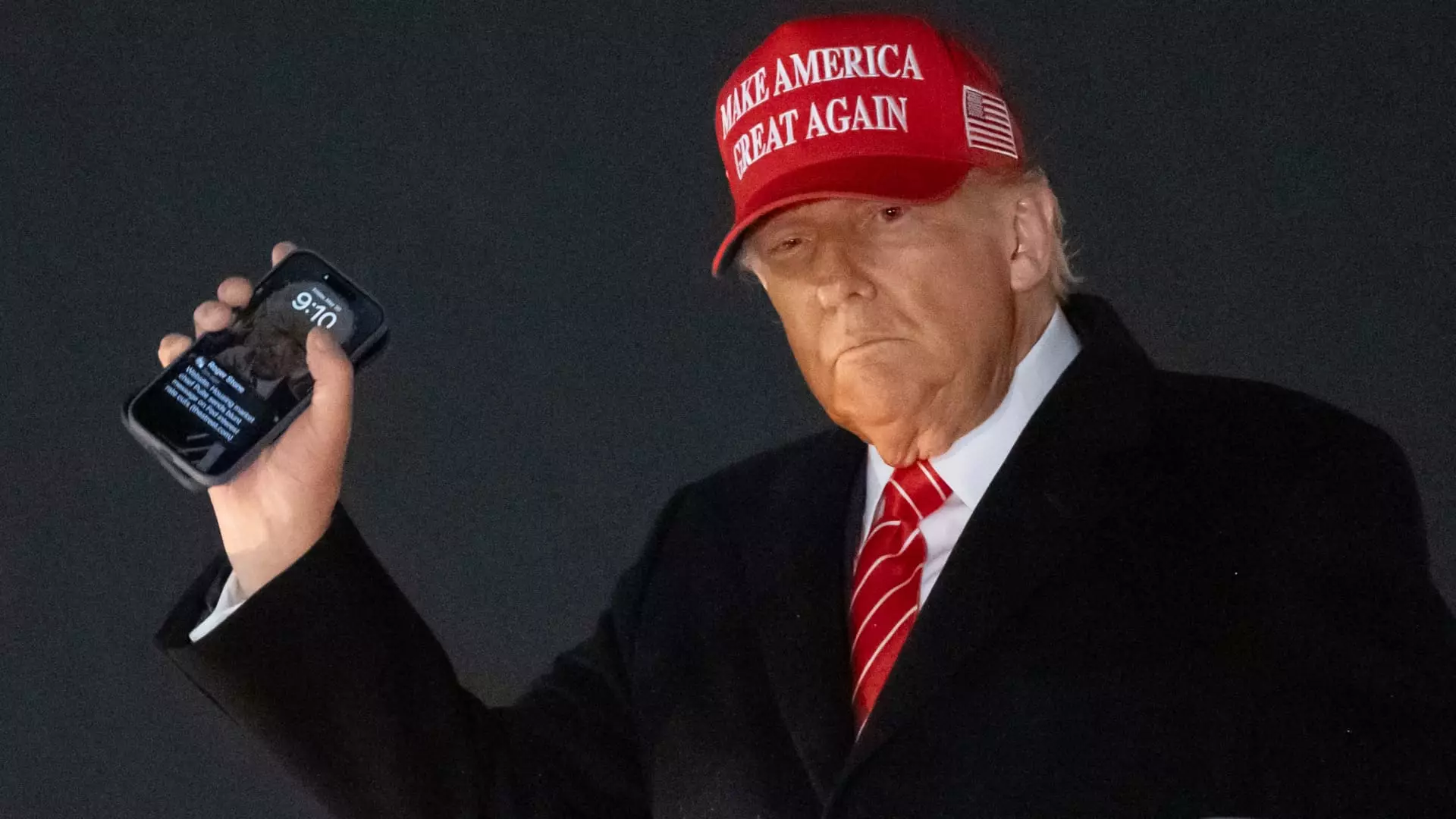The Trump Organization has recently launched a daring new venture: a mobile phone service dubbed “Trump Mobile,” accompanied by a $499 smartphone, the “T1.” This announcement signifies yet another attempt by the Trump brand to morph everyday consumer technology into a lucrative extension of its political identity. Ostensibly, the launch appears aimed at capitalizing on the former president’s notoriety rather than delivering a genuinely compelling product to consumers. It’s a classic example of how modern capitalism can intertwine with political branding to create something that is less about functionality and more about image.
With a monthly plan priced at $47.45, which includes unlimited talk, text, and data, Trump Mobile pitches itself as a versatile choice. However, this pricing is starkly higher than competitors like Visible and Mint Mobile, who offer similar services at half the price. One has to wonder: is this premium justified, or is it simply a way to siphon off funds from those eager to show their loyalty to the Trump brand? More concerning, does it reflect a corporate ethos focused more on profit than on the consumers it aims to serve?
A Troubling Licensing Framework
Digging deeper into the logistics of Trump Mobile reveals that it operates largely as a licensing agreement rather than a bona fide telecommunications provider. As the fine print makes crystal clear, “Trump Mobile, its products and services are not designed, developed, manufactured, distributed or sold by The Trump Organization or any of their respective affiliates.” This begs the question: should consumers be investing in a brand that does not control its own product quality? For many, the privacy concerns alone—awareness of who exactly is managing this data—might deter even the most loyal Trump supporters.
Critics of this venture rightly point out the ethical grey areas that come with such a business model. The fact that a sitting president can profit from branding infrastructure, in this case a mobile service, blurs an unsettling line between public duty and private gain. Given that Trump has already reported earnings surpassing $8 million from similar licensing deals in 2024 alone, this scheme raises alarms about the intertwining of capitalism and political apologia. While many business owners feel constrained by laws surrounding ethics and responsibility, Trump’s ventures seem to skirt these rules with relative impunity.
Grappling with Reality: The Phone Itself
The T1 smartphone itself features a gold-colored casing emblazoned with an American flag—a clear attempt to revive nationalist sentiments among prospective buyers. It boasts cutting-edge specs: a 6.8-inch AMOLED screen and impressive RAM and storage. But can a flashy exterior and high specifications outweigh the questions surrounding its legitimacy and ethical considerations? People interested in purchasing high-performance phones might not find a compelling reason to lean into this peculiar branding that merges politics with consumer life.
Moreover, there’s a glaring absence of transparency regarding the actual network and customer service operations supporting Trump Mobile. While the website claims strong coverage equivalent to major carriers, specifics about the underlying infrastructure remain as unclear as its cost-value proposition. One customer service representative’s refusal to divulge the call center’s location adds an air of uncertainty that only serves to amplify consumers’ hesitations. Who, in today’s age, is comfortable entrusting their service needs—and by extension, their personal information—to dubious operators?
The Dichotomy of Brand Loyalty versus Economic Sanity
The launch of Trump Mobile forces an intimate reckoning with a larger ideological debate concerning brand loyalty, particularly in a political context. How far will supporters go to buy into a myth of Americana epitomized in a phone? Are we witnessing a unique blend of political fervor and consumerism that flouts conventional logic, or are we seeing a misguided attempt from a fading brand to cling to its previous glory?
As consumers, we should be wary of decisions that intertwine support for a brand with the acceptance of questionable business barriers. Perhaps the most unsettling aspect of this venture’s nature is less about Trump Mobile as a service and more about what it represents—a troubling marriage between a political brand and a consumer product designed to profit off loyalty without substantial backing. When choosing a mobile plan or any service, one must ask: can we afford to let political allegiance dictate our consumer choices?


Leave a Reply